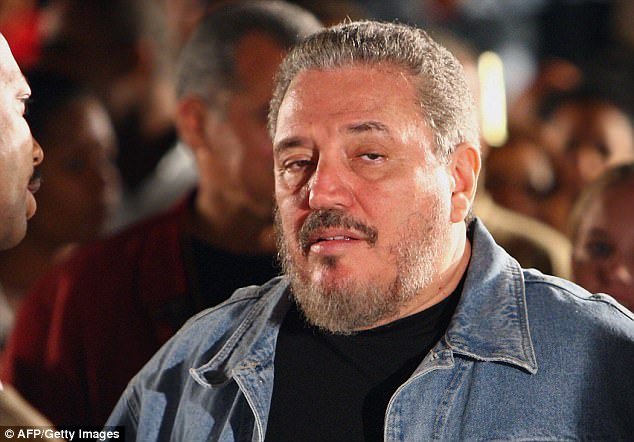Fidel Castro’s eldest son has committed suicide at the age of 68, Cuban state-run media has reported. Fidel Castro Diaz-Balart is said to have taken his own life on Thursday morning following a long period of hospital treatment for depression. Diaz-Balart, a nuclear physicist, had been released from care after several months and had been continuing treatment outside hospital when he died.

Fidel Castro’s Eldest Son, 68, ‘Kills Himself’ After Battle With Depression
‘Diaz-Balart, who had been attended by a group of doctors for several months due to a state of profound depression, committed suicide this morning,’ state official website Cubadebate said. The son of the late Cuban revolutionary leader was known as Fidelito (Little Fidel) due to his stark resemblance to his father.
Diaz-Balart, Castro’s eldest son, was the most educated of the president’s children and became one of the country’s top nuclear scientists before his father sacked him. Castro Diaz-Balart had been working as a scientific counselor to the Cuban Council of State and Vice-president of the Cuban Academy of Sciences at the time of his death.
The now-deceased leader’s son had a troubled upbringing amid his father’s adultery and reign of power in Cuba. Castro, who died in November 2016, cheated on both his wives. His first, Mirta Diaz-Balart, whom he wed when he was still a law student, gave him a son, Fidelito.
Through his mother, Fidelito was the cousin of some of his father’s most bitter enemies in the Cuban American exile community, US Representative Mario Diaz-Balart and former US congressman Lincoln Diaz-Balart.
However, after she divorced him, Castro cruelly engineered for the boy to visit him in Mexico and never let his ex-wife have the child back. Born on September 1, 1949, Fidelito was educated in Moscow and graduated from the Higher Institute of Science and Technology in the former USSR.
He was the most educated of Castro’s children, and became a top Cuban nuclear scientist and an adviser to the Council of the State of Cuba. From 1980 to 1992, he was head of Cuba’s national nuclear program, and spearheaded the development of a nuclear plant on the Caribbean’s largest island until his father fired him.
Cuba halted its plant plans that same year because of a lack of funding after the collapse of Cuba’s trade and aid ties with the ex-Soviet bloc and Castro Diaz-Balart largely disappeared from public view, appearing at the occasional scientific conference. His death came just over a year after that of his father on Nov. 26, 2016, aged 90. After Fidel Castro’s death, his brother, Raul, assumed the presidency.
Raul Castro, 86, was originally set to step down in February after two consecutive terms, ending nearly 60 years of Castro brothers’ rule and marking a transition from the leaders of the 1959 revolution to a new, younger generation. But the Communist-run government extended the term of its current leadership to April, signaling a two-month delay in the historic handover from Raul Castro to a new president
The National Assembly, however, said that devastation wrought by Hurricane Irma in September had caused a delay to the start of the political cycle in which voters and electoral commissions pick delegates of municipal, provincial and national assemblies who then select a Council of State and president.






















